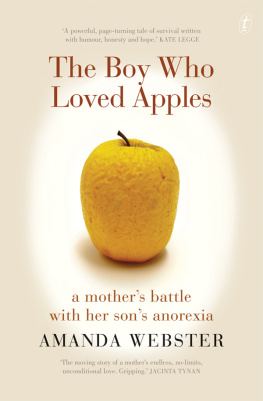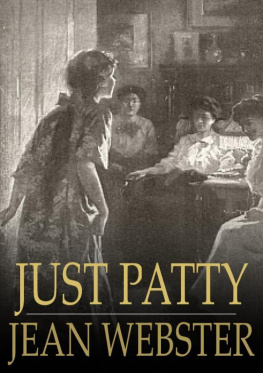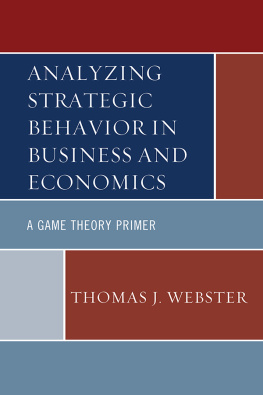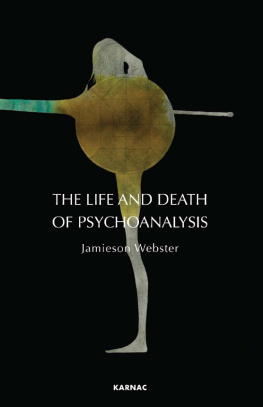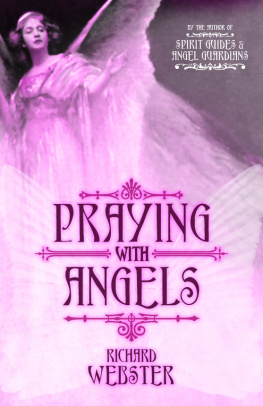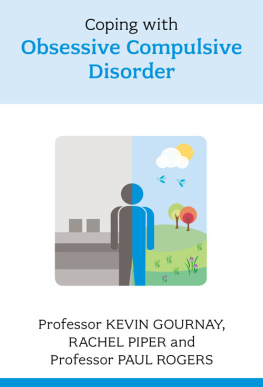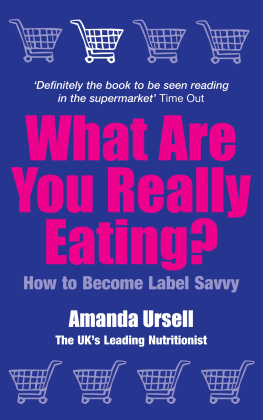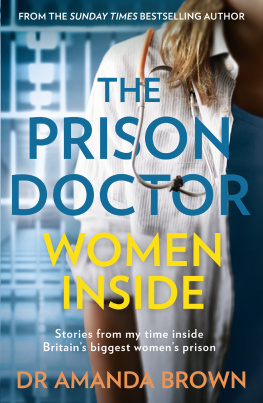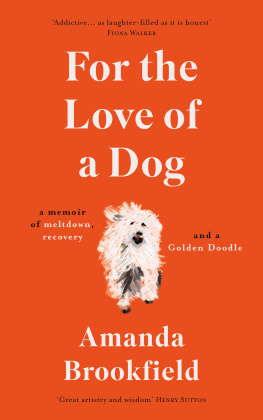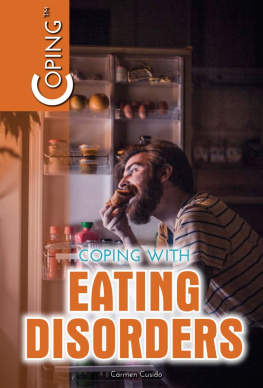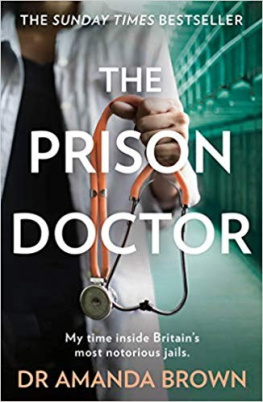Amanda Webster grew up in Kalgoorlie, Western Australia. She graduated from the University of Western Australia as a doctor, but left medicine to raise a family with her husband. Amanda turned to writing after her sons illness; subsequently her work has appeared in several US literary journals. Amanda lives in Sydney with her husband and two of her three children.
textpublishing.com.au
The Text Publishing Company
Swann House
22 William Street
Melbourne Victoria 3000
Australia
Copyright Amanda Webster 2012
All rights reserved. Without limiting the rights under copyright above, no part of this publication shall be reproduced, stored in or introduced into a retrieval system, or transmitted in any form or by any means (electronic, mechanical, photocopying, recording or otherwise), without the prior permission of both the copyright owner and the publisher of this book.
First published in Australia by The Text Publishing Company, 2012
Cover by WH Chong
Page design by Imogen Stubbs
Typeset by J&M Typesetting
National Library of Australia Cataloguing-in-Publication entry:
Author: Webster, Amanda
Title: The boy who loved apples : a mothers battle with her sons anorexia.
ISBN: 9781921922695 (pbk.)
ISBN: 9781921961113 (ebook)
Subjects: Webster, Amanda.
Anorexia nervosaPatientsAustraliaBiography.
Anorexia nervosaPatientsAustraliaFamily relationships.
Anorexia in adolescencePatientsBiography.
Anorexia in childrenPatientsBiography.
Anorexia nervosaPatientsRehabilitation.
Eating disorders in adolescence.
Eating disorders in men.
Dewey Number: 616.85262092
For Kevin, Riche, Andy and Louise
And in memory of Ava Margaret Webster
Authors note
Some identifying details have been changed to protect the privacy of individuals.
I magine for a moment that you are an Australian woman who has just given birth in the New York Hospital maternity ward. It is the spring of 1991. Your husband, also an Australian, helps you into a wheelchair. He balances an overnight bag on your lap. Then he scoops your newborn sonyour American sonfrom the crib and hands him to you.
Tense the muscles in your arms and gather your son to your chest, amazed once more at the delicate weight of him. Shift your hand beneath his head and wonder: are you old enough at thirty-one to care for a child?
Before you leave, you cast your eyes over the wilting bouquet of flowers on the locker next to your bed and take one last look out the window of room 635 at the 59th Street Bridge. Your city, you whisper to your child. Such a tiny baby, such a massive city. Your husband wheels the two of you into the elevator, down to the entrance foyer, past the armed security guard and out to the street, where he hails a yellow taxicab to take you back to the Upper West Side. Back to your new life as a parent.
In your apartment high above Broadway, you record your babys birth weight (7 lb 12 oz) and length (21 inches) in a baby book with a glossy black cover. You write your obstetricians nameDr Gubernikin careful black print, and those of the two midwives Pamela and Roseannewho sponged your forehead with cool water and encouraged you to push. You paste in the newborn identification sheetyour right index fingerprint is just a smudge between the perfect impressions of your sons feet.
On his second night home, your son sleeps between you: your husband records this in scrawly blue handwriting on the Sleeping pattern page. All three of you enjoy a charmed sleep. Your husband plays Carly Simon, Enya or Dire Straits each evening, because this is the music you listened to during your pregnancy. He thinks it will be familiar and soothing to his son and you love him for this. He doesnt know you played the music to soothe yourself as much as your unborn son, convinced you would somehow hurt him. Fretting because you failed to eat all the fruit and vegetable portions recommended in What to Expect When Youre Expecting and didnt exercise as much as you could have; dwelling on the glass or two of wine you drank before you knew you were pregnant. Sometimes not even Carly Simon could slow the fearful beating of your heart.
This is your first child and you want to do everything by the book, so you paste a news clipping onto the blank page titled World Eventsan article from your husbands Wall Street Journal. In years to come it will remind you, should you wish to know, that soon after your sons birth the Dow Jones Index rose by 17.58 points to close for the first time above 3000. Whatever that means. Of more interest is the report of US troops in northern Iraq and UN officials in search of Baghdads nuclear and chemical arsenal. You wipe newsprint from your fingers, smell glue, unaware of the way the story of this year will echo in your sons life so many years into the future.
What you do know is this: you will do everything in your power to keep your child from harm. You will lock doors and windows. Fasten the seatbelt in his pram, always. Take him to the paediatrician for checkups. On your return to Australia, you will teach him to look to the right, look to the left, and look to the right again before he crosses the road to the private boys school where you think he will be happy.
Where, at first, he is. Aged eight, he wins an academic scholarship. You smile and hug him and hope he doesnt detect your concern. Is this achievement too great a burden for such young shoulders? Theres nothing you can do about this, so you concentrate your efforts where you can make a difference. Wholesome TV shows only, apart from a small lapse when Pokmon and Digimon somehow get their animated feet in the door. Nutritious mealsWeetbix for breakfast, Vegemite and cheese sandwiches for lunch, sausage and three veg for dinner, and fruit, always fruit, for snacks. When your son complains of an episode of bullying, you apply your lipstickan indignant redand march to the headmasters office. You teach your son about stranger danger.
And you will learn that no matter how hard you try to protect your child you can never do enough. Your son will develop anorexia before he turns twelve and for months, years even, you will believe it is not nameless strangers who have proved to be the danger, but you and your husband.
Well-meaning acquaintances and friends alike will ask, Do boys get anorexia? You will say, Yes. (Obviously.) And then they will ask, How did he get it? They will ask this because most, secretly, will consider you somehow at fault.
You will agree. You will compile a list of every mistake that you and your husband have ever made, believing that somewhere in that list you will find the answer to the question.
At least, this is how it was for me for a very long time.
looked at the high brushwood fence as if it enclosed a gulag. Im not going in there,the lines on his face a roadmap of fearyou cant make me.
I hesitated. I felt like I was having one of those weird dreams where you suddenly find yourself naked in the street or peeing in public. In fact I was standing with my eleven-year-old son outside a Brisbane eating disorder clinic called Footprints of Angels. It was January 2003 and my other children, nine-year-old Andy and six-year-old Louise, were at home in Mullumbimby, 150 kilometres to the south. Id left them with their fathermy husbandwith whom I was not well pleased.
The place didnt look like a clinic. The fence, the unmarked letterbox and the discreet side entrance gave it more the appearance of a suburban brothel, a place where people came and went unobserved, a place of secrets, a place with stigma attached. But this was no time for squeamishness. Riche had been dangerously thin for three months and was showing signs of cardiac compromise. His pulse rate had been dropping; he got dizzy when he stood. I knew from my medical training that he was at risk of sudden death from cardiac arrest. I opened the gate.
Next page
